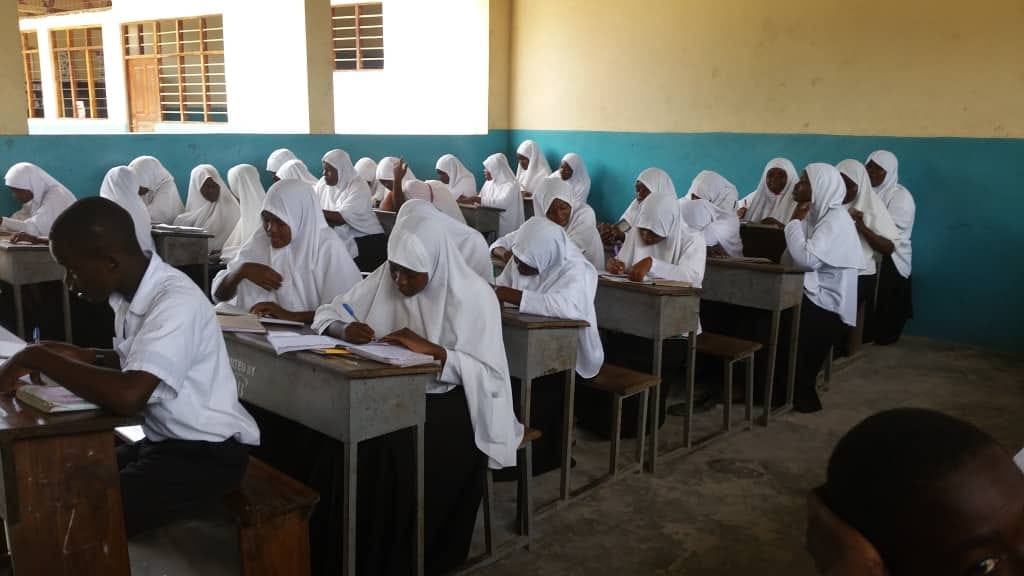
Tanzania’s government is making significant strides to bridge the education gap between urban and rural areas by introducing a strategic teacher deployment initiative.
This groundbreaking move aims to ensure that students in underserved rural schools receive quality education, ultimately fostering national development and reducing educational disparities.
Addressing the Rural Education Challenge
For years, rural schools in Tanzania have faced numerous challenges, including:
- Teacher Shortages: Many rural schools operate with a minimal number of teachers, forcing educators to handle large classes and multiple subjects.
- Limited Resources: Rural schools often lack basic teaching materials, affecting the quality of education.
- High Dropout Rates: The lack of qualified teachers and infrastructure discourages students from continuing their education.
The new teacher deployment strategy seeks to tackle these challenges head-on by ensuring equitable distribution of qualified educators across the country.
Key Features of the Teacher Deployment Strategy
1. Incentives for Rural Teachers
The government has introduced attractive packages for teachers posted to rural areas, including:
- Housing Allowances: Teachers in remote areas receive housing support.
- Transport Allowances: Subsidized travel costs to encourage teachers to accept rural postings.
- Professional Development Opportunities: Teachers in rural areas are prioritized for training and career advancement programs.
2. Data-Driven Allocation
A centralized system identifies schools with the greatest need for teachers, ensuring that resources are allocated where they are most needed.
3. Community Engagement
Local communities are involved in supporting teachers through initiatives like building housing and providing basic amenities.
4. Retention Programs
Efforts are made to retain teachers in rural areas by addressing their concerns and improving their working conditions.
Impact of the Deployment Strategy
The teacher deployment strategy is already showing promising results in rural Tanzania:
1. Improved Student-Teacher Ratios
The initiative has significantly reduced the student-teacher ratio, allowing for more personalized instruction and better learning outcomes.
2. Increased Enrollment and Attendance
With more teachers available, parents are motivated to send their children to school, boosting enrollment and attendance rates.
3. Enhanced Quality of Education
Qualified teachers in rural schools are introducing innovative teaching methods, improving student performance and engagement.
4. Empowerment of Local Communities
Communities feel more involved and valued, fostering a collaborative effort to support education.
Success Stories from the Field
- Mwanza Region: Schools in remote villages have reported a 30% increase in enrollment since the deployment of additional teachers.
- Dodoma Region: Teachers equipped with professional development training have introduced creative classroom activities, leading to higher student engagement.
- Kigoma Region: Community-built teacher housing has attracted and retained more educators, stabilizing school operations.
Challenges and the Way Forward
Despite the progress, there are still hurdles to overcome:
1. Infrastructure Gaps
Many rural schools still lack adequate classrooms, electricity, and sanitation facilities.
2. Limited Resources
Access to teaching materials and technology remains a challenge in remote areas.
3. Cultural Barriers
Some rural communities still undervalue education, particularly for girls, requiring targeted awareness campaigns.
To address these challenges, the government is:
- Investing in Infrastructure: Plans are underway to build more classrooms and equip schools with modern facilities.
- Partnering with NGOs: Collaborations with non-governmental organizations are helping to fund and implement education programs.
- Promoting Digital Learning: Introducing e-learning platforms to rural schools to supplement traditional teaching methods.
The Role of Stakeholders
The success of the teacher deployment strategy relies on the collective efforts of various stakeholders.
- Government: Ensuring sustained funding and policy support.
- Teachers:Embracing the challenge of rural postings with dedication and professionalism.
- Communities: supporting teachers and advocating for education within their regions.
- Private Sector and NGOs: Providing financial and logistical support to enhance rural education.
Conclusion
The new teacher deployment strategy is a game-changer for rural education in Tanzania. By addressing the root causes of teacher shortages and improving working conditions, the government is creating an environment where every child, regardless of location, can access quality education.
This initiative not only benefits students but also strengthens communities and contributes to the nation’s development. As Tanzania continues to invest in its education sector, the future looks brighter for rural schools and the young minds they nurture.
Related articles
- Discover Tanzania University Semester Two Exam Timetable Today
- 10 Proven Strategies to Ace Your Semester One Exams in Tanzania
- The Ultimate Guide to Scoring High in Semester One Exams at Tanzanian Universities
- Semester One Exam Schedule for Tanzanian Universities: Key Dates and Updates
- UDSM Announces Research Scholarships for Climate-Smart Agriculture
- Ministry of Education Denies Changes to Kenya’s University Entry Requirements
- Prof. Carolyne Nombo Opens Key Stakeholders Meeting on Teacher Education
- UDSM-Sida Re-advertises PhD Sponsorship in Marine Sciences
- How Companies in Tanzania Empower Education Through Scholarship Sponsorships

